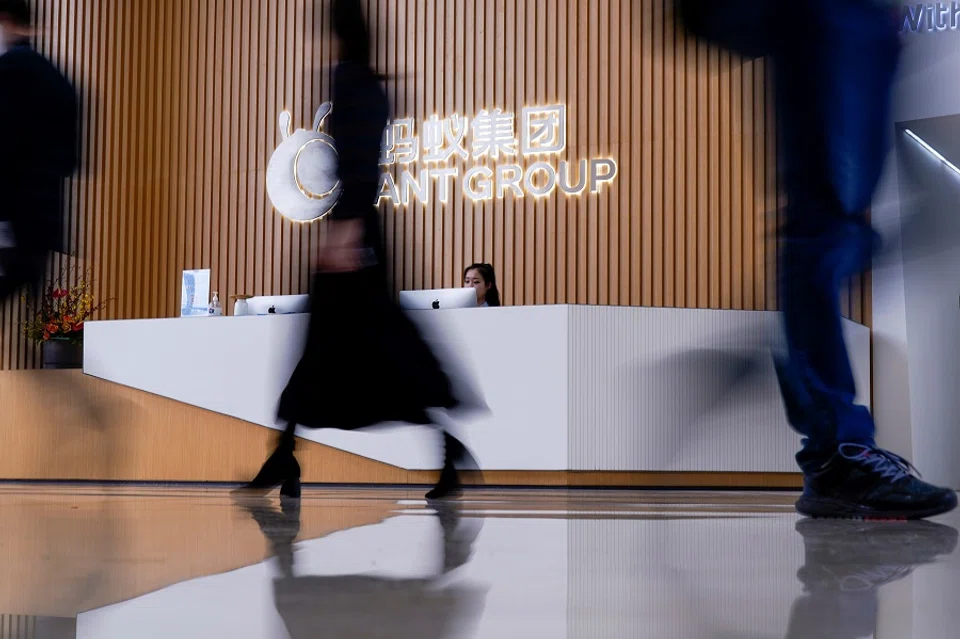Regulating new technologies: Singapore and China can work together
Law experts Tan Chong Huat and Amanda Chen observe that the recent halting of Ant Group's dual listing on the Hong Kong and Shanghai stock exchanges augur more regulatory changes in the micro-loans industry. While this lowers financial stability risk, will more of such regulations hinder fintech advancements? Where's the middle ground? In their opinion, there is much that Singapore and China can learn from each other in the regulation of emerging technologies.

Ant Group's plan to simultaneously list on the Hong Kong and Shanghai stock exchanges no doubt created the most buzz in global capital markets in 2020. But two days shy of its scheduled launch on 5 November 2020, the IPO that was set to become the world's biggest was suddenly halted.
Most industry experts attributed this delay to the China Banking and Insurance Regulatory Commission and the People's Bank of China's draft "Interim Measures for the Administration of Online Small Loan Business (Draft for Comments)"* (henceforth "measures") released on 2 November 2020, and the resulting regulations or changes brought about in the online micro-lending industry.
Tighter regulations a long time coming
Through new technological risk control measures such as using big data, as well as simple loan procedures and implementing low thresholds for lender qualification, online micro-lending provides new avenues to meet the demands of lower-income earners, a group that has been underserved by the traditional financial industry.
However, industry giants such as Ant Group have also been criticised for circumventing the government's regulations in the traditional financial sector in the name of technology, thereby achieving rapid growth at the cost of financial stability risks. Hence, the measures released also included regulations on core issues regarding online micro-lending supervision.

Firstly, to overcome the problem of low capital and high leverage of online micro-lending businesses, the measures say: "In a single joint loan, the proportion of capital contribution of a small-loan company operating an online small loan business must not be less than 30%".* In addition, the measures state: "The balance of funds received through bank loans, shareholder loans, and other unstandardised financing forms must not exceed one time the company's net assets, and the balance of funds received by issuing bonds, asset-based securitised products, and other standardised credit assets must not exceed four times the company's net assets."*
These regulations stipulate that online micro-lending businesses, including Ant Group, must further increase capital and reduce leverage if they wish to maintain their current lending scale after the measures are implemented. Additionally, the measures also state, "Without the approval of the banking supervision and administration institution of the State Council, a small-loan company must not conduct an online small loan business across provincial administrative regions."* This means that industry giants like Ant Group would be included under the regulatory scope of the banking supervision and administration institution of the State Council.
The bottom line is, there has to be a balance between ensuring the stability of the financial sector, maintaining a fair competitive environment, and encouraging fintech innovation.
If the current version of the measures is implemented, a more comprehensive and systematic supervision system for the online micro-lending industry will be in place. This is probably what the Shanghai Stock Exchange meant when it said that the Ant Group "has also reported significant issues such as the changes in financial technology regulatory environment" when it explained halting the latter's IPO. We are of the view that from the perspective of strengthening supervision, the future implementation of the measures would further regulate the emerging fintech industry, or reduce the potential impact of fintech on the stability of the financial system.

Would tough measures stifle fintech growth?
However, from the perspective of technological development, would a high-entry threshold and regulatory requirements become a barrier to the growth of small- and medium-sized fintech enterprises, and lead to only the industry giants having all the say? This seems to go against the fintech industry's vision of using technology to break the "capital-first" monopoly over the traditional financial industry.
The bottom line is, there has to be a balance between ensuring the stability of the financial sector, maintaining a fair competitive environment, and encouraging fintech innovation. In this aspect, one of Singapore's solutions worth learning from is the FinTech Regulatory Sandbox under the Monetary Authority of Singapore (MAS). This regulatory sandbox allows fintech companies to test their innovative financial products or services in a live environment within a designated scope and time, within a framework of relaxed regulations and added regulatory support from the MAS.
From our observations, China has also started to try out such a system since 2019. It is worth noting that the companies approved for participation in China are generally larger companies with financial licenses, while licensing is not a core consideration in Singapore's sandbox system. We feel that Singapore's approach is more in line with the spirit of encouraging innovation.

Of course, besides allowing some regulatory exceptions in order to drive innovation, it is also necessary to promptly revise the regulatory framework to keep up with technological developments. For example, Singapore's Payment Services Act of January 2019 provides a forward-looking framework to regulate innovations in payment services, effectively managing innovation-related issues, such as technical risks and the lack of a single set of standards for payment solutions providers.
As leaders in technological innovation, China and Singapore can learn from each other and explore the best solutions in regulation of new technologies like fintech.
In keeping with the times, Singapore has also rolled out digital banking licenses, providing more possibilities for banking services in the internet era. According to an announcement by MAS on 4 December 2020, a wholly-owned subsidiary of the Ant Group has successfully obtained such a license.
Balancing technological innovation with legislative regulation is a perennial hot topic in the current era. From commercial giants like the Ant Group to individuals, anyone can be affected by any changes. While exploration and uncertainty is inevitable, we believe that technological development and regulatory improvements will generally keep moving forward.
As leaders in technological innovation, China and Singapore can learn from each other and explore the best solutions in regulation of new technologies like fintech.
*Translation from Stanford Law School, China Guiding Cases Project.
Related: Alibaba probe: China's challenges in dealing with monopolies start with the state-owned enterprises | China's tightening fintech regulations may benefit Ma Yun's Ant in the long term | With Ant Group's record $34.5 billion IPO suspended, what happens next? | China to clamp down on monopolies and spur domestic demand




![[Photos] Fact versus fiction: The portrayal of WWII anti-Japanese martyrs in Taiwan](https://cassette.sphdigital.com.sg/image/thinkchina/3494f8bd481870f7c65b881fd21a3fd733f573f23232376e39c532a2c7593cbc)

